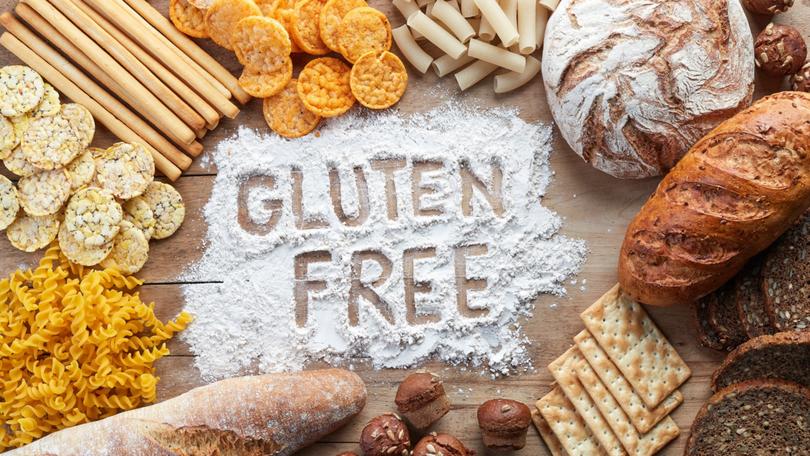SARAH DI LORENZO: How bad is gluten really for us? The gluten free obsession
SARAH DI LORENZO: A quarter of our population avoids gluten but only one per cent have coeliac disease. So what’s really going on here?

The gluten-free obsession is very real in Australia, recent research has shown that one in four Australians avoid gluten, that is 25 per cent of our population, but only around one per cent have coeliac disease.
So why the gluten-free obsession?
So what actually is gluten? Well it is a structural protein found in certain cereal grains.
Sign up to The Nightly's newsletters.
Get the first look at the digital newspaper, curated daily stories and breaking headlines delivered to your inbox.
By continuing you agree to our Terms and Privacy Policy.Gluten is the elastic network of wheat grains proteins, gliadin and glutenin.
Gluten is stretchy and what gives bread its bubbly structure, makes ramen noodles bounce and pizza crust that wonderfully chewy texture.
We also find gluten in beer, soy sauce, gravies, pasta, noodles, pastries, crackers, baked goods, cereal, granola, breakfast foods, croutons, coating mixes, sauces, tortillas, brewers yeast, energy bars, chips, processed lunch beans, some soups, lollies, brown rice syrup, meat substitutes, cheesecake filling, marinades, salad dressing and everything that contains wheat even shampoo!
So what really drives so many people to want to be gluten-free?
There are a few reasons why.
Outside of being a coeliac there are many people who simply believe living gluten-free means living a healthy life because gluten is found in a lot of processed foods, but this is interesting because many gluten-free products are actually ultra-processed foods.
Some people feel it is a way of controlling weight by going gluten-free and others simply think gluten-free means healthy and this is clearly evident in marketing.
Another reason is that many people feel they have a non-coeliac gluten sensitivity, therefore avoiding gluten.
There are also several theories that gluten may worsen autoimmune conditions such as Grave’s disease, rheumatoid arthritis, type 1 diabetes and Hashimoto’s thyroiditis.
The research for this is that autoimmune diseases share common genes and immune pathways with coeliac disease.
Non-coeliac gluten sensitivity is what I see most clinically and this can range from mild to severe.
The symptoms include irritable bowel syndrome, abdominal pain, headaches, nausea, depression, anxiety, autoimmune disorders, joint and muscle pain, stomach pain, bloating, diarrhea, constipation, flatulence, skin issues, cloudy foggy brain fog feeling, fatigue and low energy.
Many can feel like this from eating refined carbohydrates foods like cakes, pastries, biscuits, white bread and white pasta regardless because of the high glycemic index creating a sugar high and a sugar low so when the diet is changed to avoid these foods people feel better regardless of gluten, hence the self-diagnosis of non-coeliac gluten sensitivity.
For me clinically I would have to say that when I start people on weight loss programs that are low carbohydrate, gluten-free and higher in protein around the two to three-week mark when they come in to see me many will share how amazing they feel especially comments like no brain fog, better energy, sleeping better and mental clarity.
Most of these people have had a non celiac gluten sensitivity so once I get them to their health goal I will often do a retest.
By this I mean when they have hit their health goal I will get them to have a day with gluten and see the impact on their health.
If the symptoms return then I will teach how to have a healthy diet with all food groups gluten-free.
So is gluten really bad for us? I think the answer to this is very individual.
There are many people who have no issues at all with any gluten and can function feeling on top of life with full energy and amazing health as gluten can be very easily tolerated by many.
Then there are others who know when they eat gluten they feel somewhat compromised and it affects the quality of life.
For those who want to avoid gluten, my advice is to make sure you are still including complex carbohydrates in your diet such as rice, potatoes, quinoa, corn, buckwheat, sorghum, amaranth and oats.
What is most important is a healthy balanced diet including all food groups and living your best life full of vitality feeling your best self.

